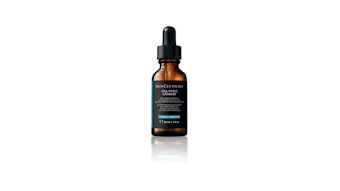In an effort to wade through concerning and often confusing claims relating to the use of isotretinoin for patients with severe acne, American Academy of Dermatology expert William D. James, MD, FAAD, has reviewed the most recent literature to offer guidance to prescribing physicians. His review covers the potential link between isotretinoin and IBD; its link to depression and suicide ideation; and potential concerns related to new high-dose regimens.
Following are his findings:
New studies dispute IBD link
After isotretinoin was first introduced, there were some reports of IBD (which encompasses both Crohn’s disease and ulcerative colitis) occurring or getting worse in patients using isotretinoin. Dr. James explained that by the mid-2000s, papers published in gastrointestinal journals reported that isotretinoin could cause IBD—resulting in several lawsuits stemming from this relationship.
Two new studies published in 2013 closely examined the relationship between isotretinoin use and IBD. The most recent and statistically significant studies deny an association between isotretinoin and IBD, and instead implicate a possible link between acne severity and IBD. (Etminan M, et al, JAMA Dermatol 2013;149(2):216-220 and Alhusayen, et al, J Invest Dermatol, April 2013)
Severe acne is seen in inflammatory diseases such as SAPHO syndrome (which includes a variety of inflammatory bone disorders that may be associated with skin changes) and PAPA syndrome (a rare genetic disorder characterized by its effect on the skin and joints), which were both found to be associated with IBD. (Femia, et al, J Invest Dermatol, April 2013).
On average, IBD begins at age 19, which is close to the same age when a patient might develop severe acne and be treated with isotretinoin.
Based on these new findings, Dr. James and other dermatologists believe severe acne itself might predispose a person to IBD, regardless of whether acne is treated with isotretinoin. He educates his patients about the scientific research concerning the possible association with IBD and monitors for it in patients taking isotretinoin. He recommends his colleagues follow this same course of action.
Acne, ADHD and Depression
Psychiatric side effects in patients taking isotretinoin—mainly depression—have been reported and studied for several years. A new observation includes an increased risk of Attention Deficit Hyperactivity Disorder (ADHD) in some patients with acne. Dr. James stressed that this association is not related to isotretinoin use, even though acne patients with ADHD may be taking this drug. Because ADHD is associated with an increased risk of suicide, Dr. James noted that a number of acne patients with ADHD may already be at a higher risk of depression regardless of whether they are taking isotretinoin.
One recent study examining mood changes in a small group of patients taking isotretinoin found a marked improvement of psychiatric symptoms in conjunction with improved acne. (Nevoralová Z, et al, Int J Dermatol, February 2013)
In a study that examined a large number of acne patients taking isotretinoin, Dr. James explained that there was a reported negative effect on mood in a small number of patients—about four per 1,000.
Despite the low risk of depression with isotretinoin use, Dr. James always checks for pre-existing mood disorders before prescribing isotretinoin and educates all patients taking this drug thoroughly about this controversy. He also insists that someone close to the patient—a roommate, parents, spouse—is made aware that the patient is taking isotretinoin so he or she can help monitor for any unexplained mood changes during the course of treatment.
Benefits, Risks of High Dose Isotretinoin
One of the key benefits of isotretinoin in patients with severe acne is that use of the drug has been shown to successfully treat acne and lead to long-term remission of the condition. About half of all patients taking isotretinoin may relapse following treatment and require additional use of isotretinoin or a milder topical or oral acne therapy, but new research suggests that using a higher dose of isotretinoin could provide longer-lasting results. (Cyrulnik AA, et al, Int J Dermatol, September 2012)
Dr. James cautioned that higher doses can increase the chance of side effects—primarily severely dry skin, nosebleeds, inflammation of the lips, triglyceride elevations, and psychiatric or mood disorders.
In some cases where a high dose has been prescribed, a temporary worsening acne flare has been reported.
Benefits of standard-dose isotretinoin use include milder side effects and an increased likelihood that patients will take their medication as directed.
New Formulation Increases Absorption
A new isotretinoin formulation (Epuris, Cipher Pharmaceuticals) allows the medication to be better absorbed and circulated within the body—even without being taken with a fatty meal, a requirement in isotretinoin use that poses a challenge for some patients. Based on initial studies with this new formulation, Dr. James believes it is likely to enhance results as patients are absorbing more of the dosage.
If a patient does not eat a fatty meal with isotretinoin, the patient only absorbs about 40% of the prescribed dose. With the new formulation, a patient will absorb about 70 percent of the prescribed dose even if the patient does not eat a fatty meal. (Webster GF, et al, J Am Acad Dermatol, November 2013). Though, Dr. James notes that the higher cost of the new formulation could limit its use initially. But patients who are not responding to isotretinoin or eating fatty meals with the medication may be good candidates for the new formulation.
“Isotretinoin remains the gold standard for treating severe acne, but there are many aspects that must be taken into consideration before it is prescribed,” said Dr. James. “It is important that dermatologists and patients who are good candidates for isotretinoin—along with friends or family and, in some cases, other physicians—work together to ensure the safest and most effective treatment outcome. It is encouraging that new studies continue to be conducted on the use of isotretinoin, and I expect more studies will further expand our knowledge of this powerful and effective medication in the future.”











